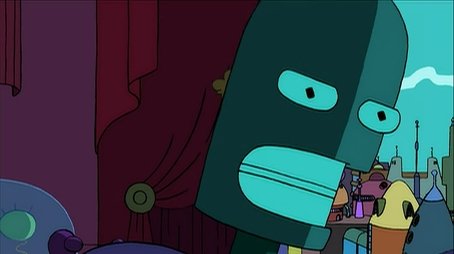
Sorry, we have not watched this yet.

Bender is the featured attraction in the Ultimate Robot Fighting League, but his glory is short-lived when he is instructed to intentionally lose his next match. Leela vows to lead Bender to victory, in an effort to show up her unsupportive martial arts teacher.
Sorry, we have not watched this yet.